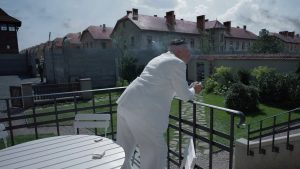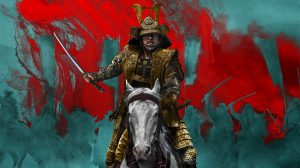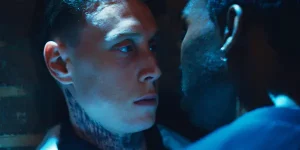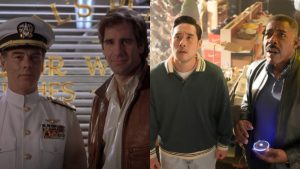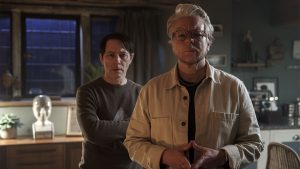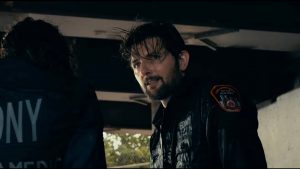
Each generation has historical blind spots out of the reach of personal memory, and these same events can still be too recent to fit into a convenient history we can tie a bow on. Post-Soviet Union Yugoslavia probably took a page in my history textbook. That was all.
Kiss The Future feels like critical viewing for many like me who did not live through this news cycle, and even for those who did, the new documentary shines a fresh light on the power of art and vital human connection in the face of ghastly atrocities.
In the aftermath of the Soviet Union and the fall of the Berlin Wall, you had a world still stricken with growing pains. Yugoslavia was split into six individual republics. However, in the political vacuum left behind in this ethnically diverse population, Slobodan Milošević looked to fill the void with violent Serbian nationalism. All local populations became his victims; it quickly turned into genocide.
At the center of it all was the city of Sarajevo in Bosnia and Herzegovina, which still holds the dubious record of weathering one of the longest sieges in modern warfare — a staggering 1,425 days. Still, their resistance took many forms.
A Shield Against Dark Forces
The beauty of this new doc from director Nenad Cicin-Sain comes with a moving realization. Big names are attached. Ben Affleck and Matt Damon helped produce. Bono, Edge, and U2 are featured. And yet front and center are the people of Sarajevo themselves.
Journalists Vesna and Senad Zaimovic were newlyweds who married during the siege. Enes Zlatar was a singer in a local punk band Sikter and a member of the fire brigade. Alma Catal grew up on the streets where the chaos became commonplace. They are only a few of the faces we get to know.
Each one of these people came to accept a daily life where they were being shelled, shot at by snipers, and continually reminded of their own mortality. And yet under such duress, beauty started to bloom through the cracks. Because creativity is often at its most passionate during chaos; the urge for art is amplified.
source: Fifth Season
It brings to mind the quote from Robin Williams in Dead Poets Society — a film that came out only a few years before the war — “poetry, beauty, romance, love, these are what we stay alive for.” They are the sustenance to battle against the ugliness of the world, and the people of Sarajevo knew this intimately. One of the most stunning examples came when the nation put on a beauty pageant in the middle of the warzone as a defiant stand — a display for all the world to see.
After getting bombed all day, the young people would gather underground for punk shows or to dance the night away at makeshift discos powered by generators. These safe spaces of self-expression were like a respite from the insanity. In this world, U2 has become a personification of resistance. As Bono says, we all use music to protect ourselves as a shield against dark forces.
One Life With Each Other
Bono sent his well-wishes to Bosnia from the stage of MTV back in 1993, and it did not go unnoticed. Of course, the people seemed a world apart from their musical heroes, and yet a brash American aid worker and filmmaker, Bill Carter, had the crazy idea to bridge the gap. This is where the story gets even more wild.
Experiencing life on the front lives with the local populous, he understood how much music meant, and he had the ambition to try and get U2 to play a show in Sarajevo. First, he needed to make contact. Back in the heyday of fax machines, he sent a message to the band and their manager Paul McGuinness. What’s more, he got a response.
Bill took a chance and showed up at their concert in Verona, Italy armed with their fax and a dream to get an interview with U2 on behalf of Sarajevo TV. By some miracle, he got in and filmed his conversation to take back to the people.
Bono was deeply sympathetic to their plight seeing the obvious parallels between his own country of Ireland and the conflict in Yugoslavia. He notes the human heart is greedy and seeks many excuses — religion and color are convenient ones. Out of this interaction came the initial auspices of a concert.
For the time being, U2 used their newfound connection with Bill back in Sarajevo to satellite him into their “Zoo TV” Tour. There they gave a platform and a voice to locals with an audience all over the world. It offered uneditorialized reality in the middle of their shows.
Although their heart was in the right place, even Bono admits it had less impact than they had hoped. Over time it felt more and more like the reality TV they were looking to criticize — a numbing cycle potentially taking advantage of the plight of others. It was a long time coming, but eventually, there was a resolution.
In the aftermath of the Dayton Peace Accords in 1995 and the end of the violent war, the original dream finally became a reality. U2 got to play in Sarajevo. There’s such a heightened sense of excitement watching the band roll in, and nothing could quell the overwhelming impact of the evening.
Bono loses his voice — it’s shot — and by all standards of musicianship, it wasn’t the band’s finest hour. But it didn’t matter. The audience carries the burden with them, and when the whole stadium sings “One,” united together, there are goosebumps and a swell of catharsis.
It’s the encapsulation of this seismic event, and I use it in terms of what it meant to these people. We see it on their faces and the joy personified. And, again, it’s not all about U2 deigning to do this; it’s about bringing a tapestry of people together and normalizing life again. This is where the beauty lies. Not because of one band, but because of disparate people gathered together.
Conclusion: Kiss The Future
It’s easy to observe how this concert and the history surrounding it bleeds into our present. We’re constantly being reminded current events never happen in a sealed vacuum. They’re always reverberating through time and influencing everything that comes before and after.
One can even see the through lines from Sarajevo to Bono and Edge busking in a bomb shelter in Ukraine just a few years ago. This very month Bono broke into one of their most recent shows in Las Vegas to speak out about the recent death of Alexei Navalny and in typical U2 fashion, he merged his platform with social awareness and their art to reach his audience. Because these are the tools at his disposal.
His inclinations have not wavered since the early days, and it’s a reminder that even as U2 progresses after 40 years in the business, time keeps marching on. I think of Bono‘s violent cry like that of a psalmist in “Sunday, Bloody Sunday”:
Oh, I can’t close my eyes and make it go away
How long? How long?
We can be as one…
Does content like this matter to you?
Become a Member and support film journalism. Unlock access to all of Film Inquiry`s great articles. Join a community of like-minded readers who are passionate about cinema – get access to our private members Network, give back to independent filmmakers, and more.
